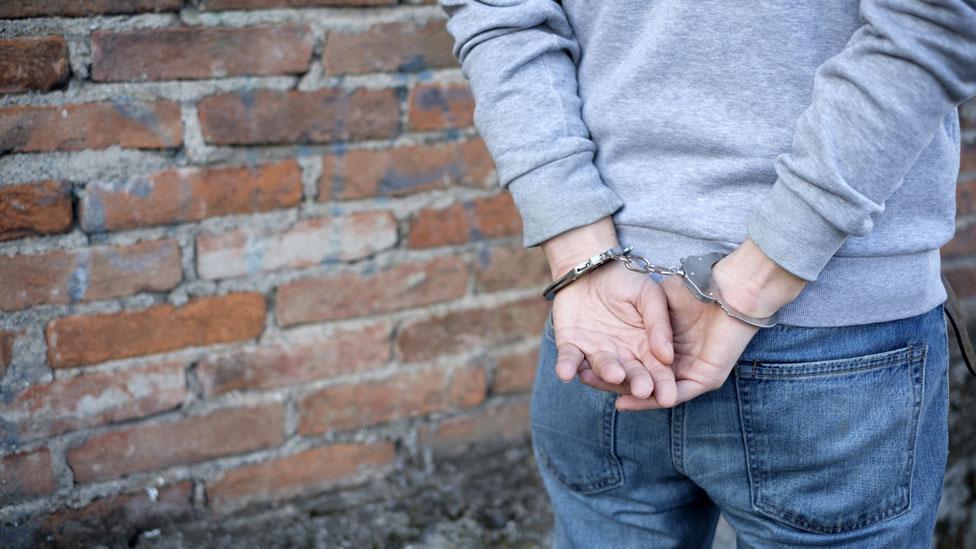11% of rape allegations to Wales forces lead to charges
- Published
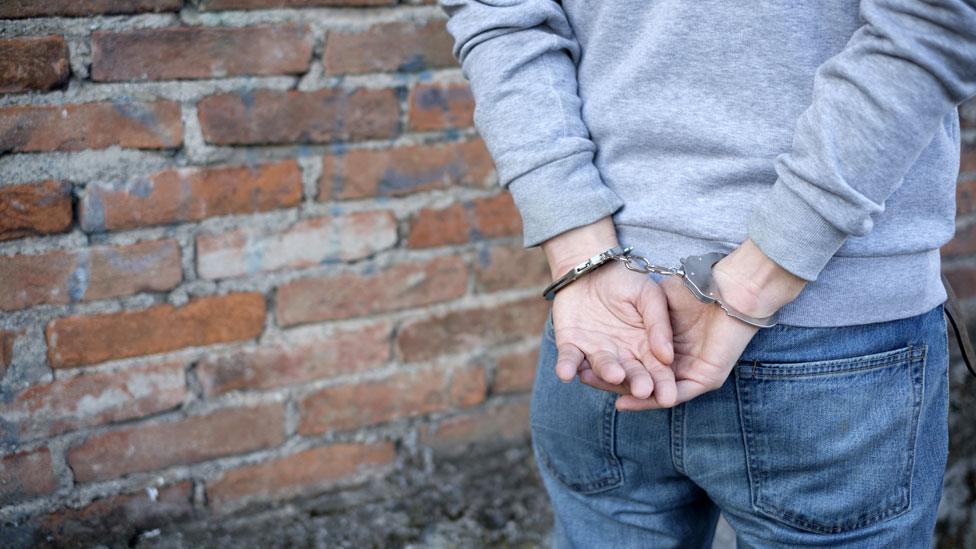
The number of rape complaints rose over six years - but the number of charges and summons has fallen
Just 11% of rape allegations made to Wales' police forces over the past six years led to individuals being charged or summonsed, figures have shown.
And while the number of rape complaints rose between 2012 and 2017 - the number of charges fell.
One woman said her sexual assault allegation being dropped meant her abuser was able to go on to assault others.
Police said they thoroughly investigate every report of this nature.
Reasons for cases being dropped included difficulties with evidence, charges "not in the public interest", problems identifying the perpetrator and the accused being too ill.
Over the same period, 15% of sexual assault allegations resulted in charges being brought - 1,050 from more than 7,000 complaints.
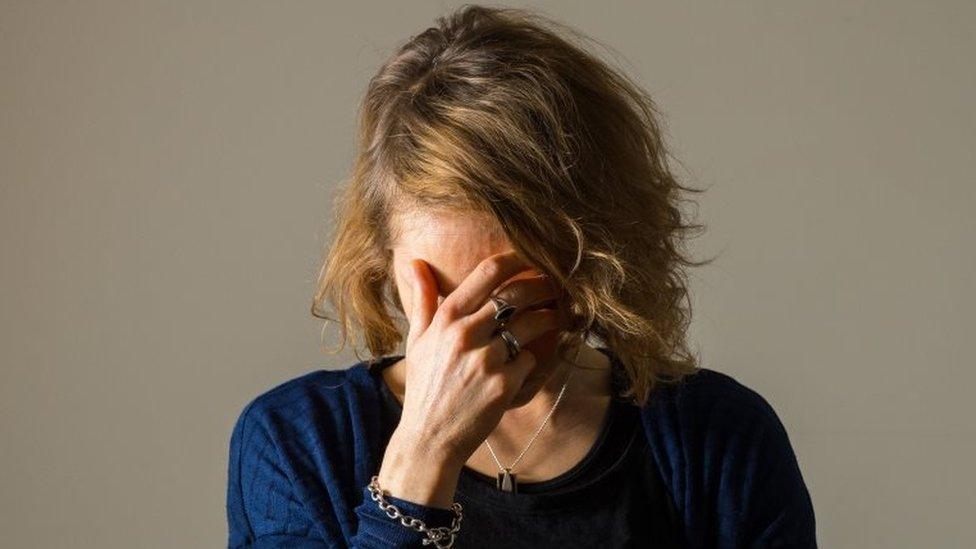
Sarah (not her real name) from south Wales was sexually assaulted by her step father when she was 12.
Her brother was too young to help her, and her mother did not believe her until Sarah had a breakdown and tried to stab the man three years later, and police became involved.
"It all came out then, but it was all handled quietly.
"I remember it now, I remember going crazy... She [my mum] sure believed me then."
But although Sarah felt she was also believed by officers, the case was dropped by the CPS due to a lack of evidence.
"I had all the help, all the counselling, but the charges couldn't be brought," she said.
Sarah said one of the hardest parts of her ordeal was going over what had happened in six different interviews.
"It had an impact on my life, I had to live with him for three years. The one place you expect to feel safe is your own home and I couldn't go home.
"I hated him so much, and it took three years of him living in my home for anyone to take it seriously including my own mother."
Sarah, now in her 30s, said her step father went on to abuse other children he lived with after her case was dropped.
"I believe by stopping him then [when she reported what happened to her], it would have had an impact on that," she said.
"It hasn't defined me because I'm better than that, but it has affected my life.
"I was in a very violent and controlling relationship for eight years, I have had an eating disorder which did so much damage to my body.
"I was definitely more susceptible and vulnerable because of what happened when I was 12. Now, my life couldn't be better, I'm stronger and I live for my kids and teaching them to be strong and to speak out if anything happens to them."

The Freedom of Information request by BBC Wales showed of the 1,205 rape allegations made to Gwent Police since 2013, 85 charges and summons were issued - so only in 7% of cases.
In the North Wales force area, there were 3,505 rape allegations between 2012 and August 2018, resulting in just 446 charges (13%).
Dyfed-Powys Police recorded 1,588 complaints between 2012 and 2018 resulting in 180 charges (11%).
The figures showed a rise in the number of allegations - from 114 in Dyfed-Powys in 2012 to 338 in 2017, but the number of charges dropped from 33 (29%) in 2012 to just nine (2%) in 2017.
Rape complaints for North Wales rose from 312 in 2012 to 779 in 2017, but again the number of charges dropped from 52 (17%) to 48 (6%).
Gwent Police's figures did not go as far back as 2012, but it saw a similar trend between 2013 and 2018.
South Wales Police said it intended to provide figures but has not yet been able to, due to heavy workloads and staff shortages.
Increased confidence
Charity Welsh Women's Aid stressed support is available, external and said more survivors were feeling confident reporting rape and sexual offences, but obtaining a conviction was still rare.
"Survivors have spoken to us about the re-traumatising experience of reporting rape and sexual assault to the police and going through the subsequent investigation and court processes," a spokeswoman said.
"There are still widespread assumptions, judgements and victim-blaming attitudes held by members of the public around consent, what rape involves and how victims should respond, and these views will also be represented amongst some in the criminal justice system and those who make up juries too.
"It is crucial that survivors can have enough confidence in the criminal justice system to come forward... without the fear of being labelled, blamed or judged."
North Wales Police said it saw a rise in the reporting of non-recent offences in 2017 - meaning some of the offenders may be too ill or dead, cases had been passed to other forces or the passage of time could create difficulties obtaining evidence.
But it said it was encouraged by the increase in reporting of rape.
"What people can be absolutely confident of is that every report of this nature is thoroughly investigated, with vulnerability and safeguarding as central themes throughout," a spokesman added.
Dyfed-Powys Police said its conviction rate for rape was higher than the national average and Det Supt Anthony Griffiths added: "We take all reports of a sexual nature seriously, and ensure victims of these crimes receive the support they need."
Gwent Police was also asked to comment.
The forces noted that they each had different systems of recording the information, which means it is difficult to make comparisons.
Across the UK, 2,800 suspects investigated for rape in 2017/18 were later charged - a 23.1% decline compared with 2016-17.
- Published6 December 2018
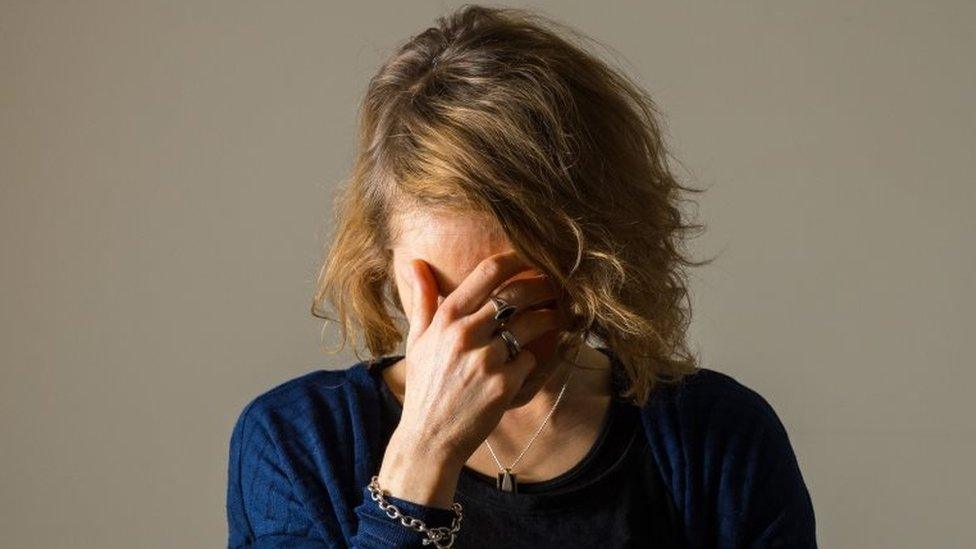
- Published26 September 2018
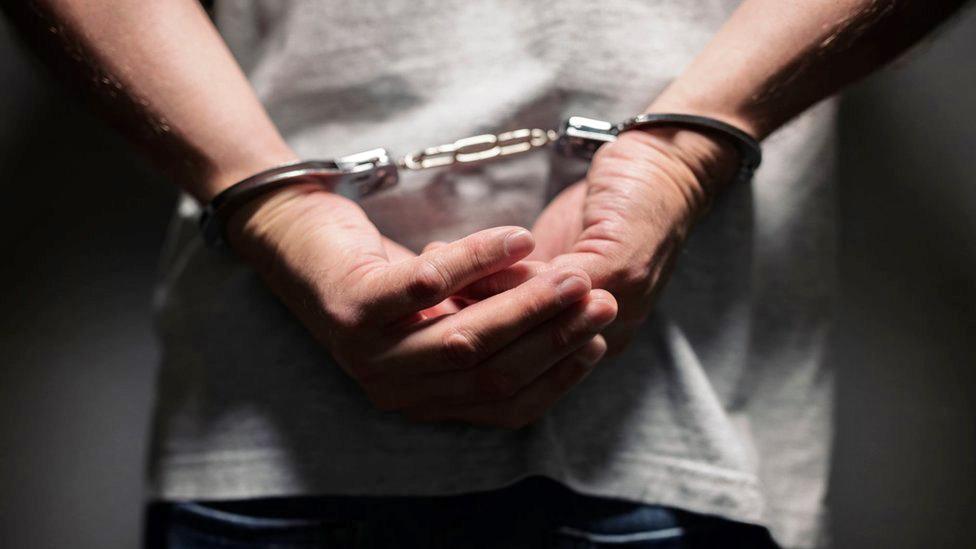
- Published24 September 2018
